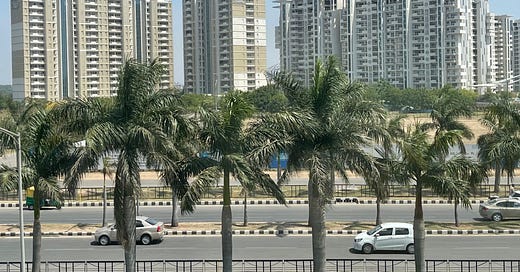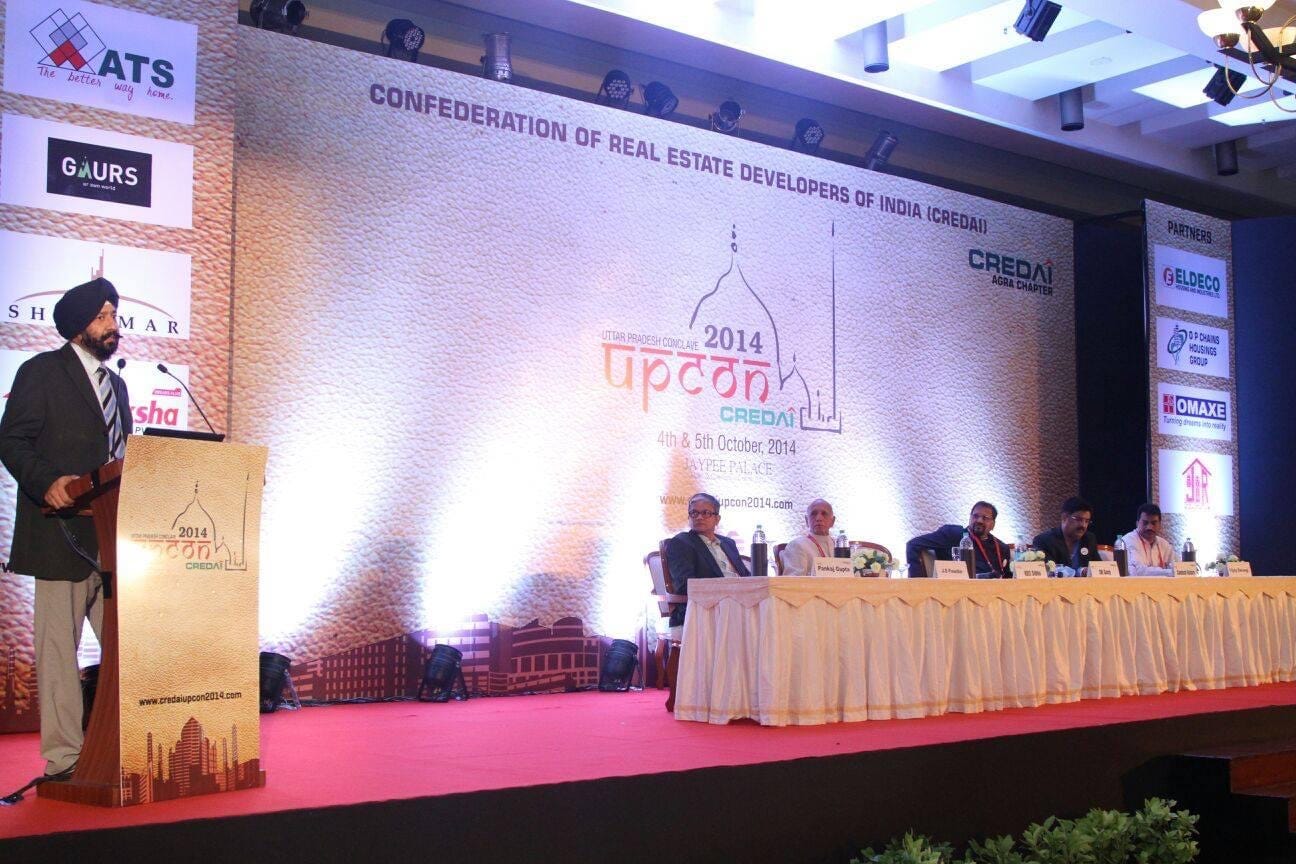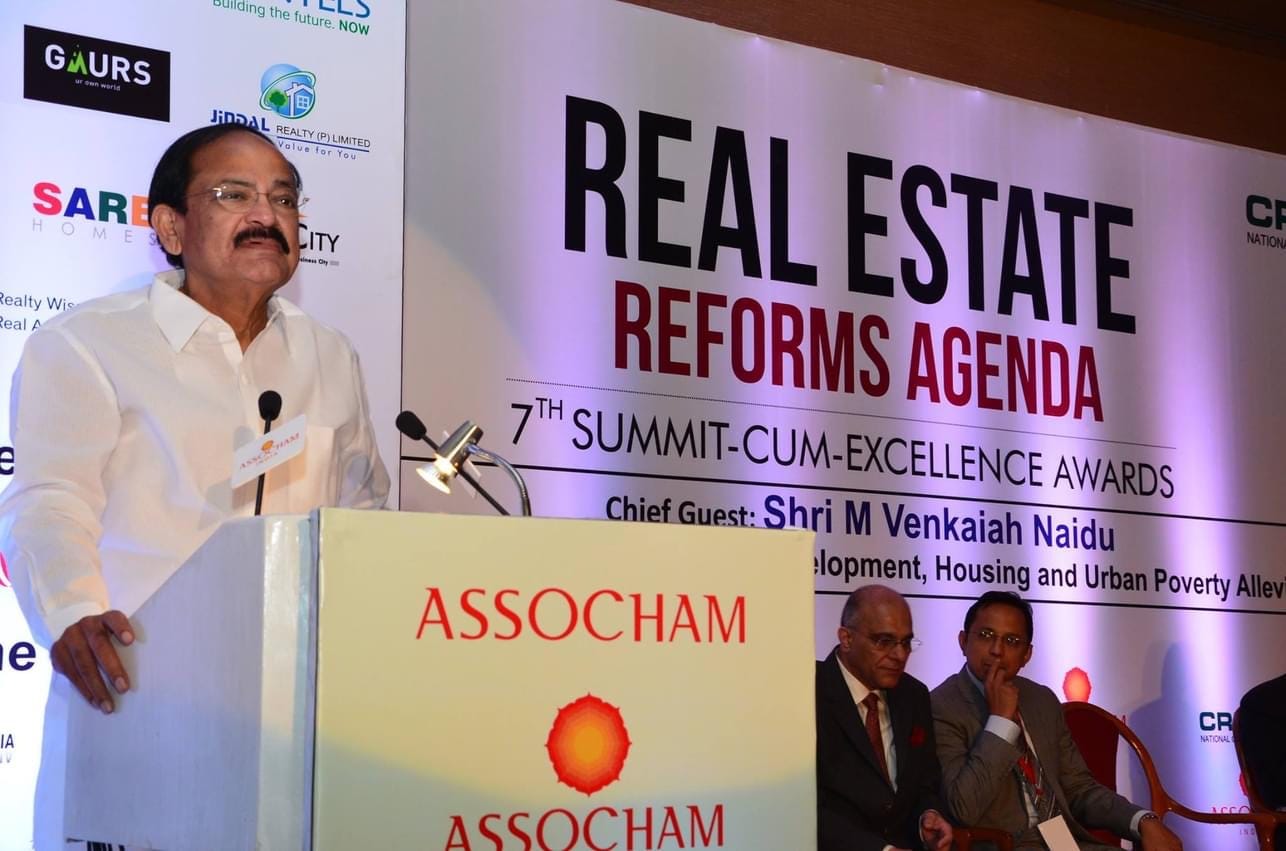"TREASURE-TROVE OF TIMELESS TIPS: INVESTING IN REAL ESTATE" (Year 2007 Blog)
This article was published by me on the internet over 16 years ago as a blog in January 27, 2007-- it still appears to be quite relevant. You may find useful.
AN OLD ARTICLE— STILL RELEVANT
I had originally published this article as a personal blog in January, 20071. The idea then was perhaps to develop it into a small book or a booklet meant for the general reader. However, the idea did not fructify and they article lay buried in the archives of the internet.
Today, however, it somehow popped up and I scrolled through it. Although over 16 years old, it seems to be pretty relevant even now. I thought should share it with you, without editing or updating. I do realise that it is quite lengthy but you can read it section-wise, as these are quite independent and self-contained.
So here it is. Happy reading. Happy investing. Feel free to share to those would might find it useful.
INVESTING IN REAL ESTATE: AN INTRODUCTION
Introduction: Down the ages, man has sought to make investments which, he has hoped, would multiply many-fold. Even as we have entered the new millennium, man’s quest for that ‘ten-bagger’ investment remains as elusive as ever, notwithstanding the increasing number of investment avenues and decision-support systems that are available today. Apart from the traditional bank deposits and Government securities, investment in equity shares, either directly or through the mutual fund route, allure us with many a ‘rags-to-riches’ fables/ story. The introduction of “Futures and Options (F & O)” trading in major stocks and indices, a person can hope to leverage his position in the stock market many times vis-à-vis the capital employed. With the precious metal Gold again in the middle of a bull run, many people are turning their attention to this traditional safe haven.
It is in this increasing complex investment scenario, that we have to see ‘real estate’ investment as another option. However, before we plunge into this seemingly simple but actually a pretty complicated field, we need to recapitulate the basic principles of investments. It is common knowledge that any investment is a trade-off between three variables: risk, returns and liquidity. In addition, individual factors like time-horizon of investment, risk appetite and amount of money to be invested also become relevant factors. Transaction and holding costs and tax implications are also some of the factors that cannot be ignored. All these parameters have to be considered, in varying degrees, when one plans to make any investment in general and more particularly in the ‘real estate’.
Bank deposits are “safe” and “liquid”, but the returns offered are barely enough to beat inflation. Equity shares can, in theory, offer multiple returns and are exceedingly liquid, but there is always a probability of the even the original capital being eroded, if caught in a bearish market trend. Historically, Gold has been the most favourite investment in uncertain and war-like conditions but apart from the problems associated with its safety/ custody, long- term trends indicate that its appreciation has barely beaten inflation.
It is in this scenario, that investment in ‘real estate’ emerges as an option that cannot be brushed aside in a casual manner. “Real estate” is investment in land, buildings or other immovable properties and the basic objective is to achieve appreciation in the capital employed. If there is any additional accretion of incremental income like rent or agricultural produce, the same is to be regarded essentially as a bonus. An added attraction of ‘real estate’ is that it is “real” and palpable, unlike equity shares which are either paper certificates or reflected merely in the statements issued by the respective depositories. There is also a certain amount of pride and snob-value attached with the ownership of “real estate”. It was perhaps Mark Twain who remarked: “I think it is always going to go up; they stopped manufacturing it a long, long time ago”. While this may not be true in strict terms, for new urban development is effected on a progressive basis, the fact remains that the total land stock is not unlimited and cannot be “produced” like other goods and services. This is more so in respect of the preferentially located properties.
Disadvantageous of Real Estate Investing: Before we delve deep into the finer examination of the various facets of the investment in “real estate”, we need to highlight some of the disadvantages of this investment. The objective of this enumeration is not merely to highlight the limitations and drawbacks of this mode of investment but to also alert the investor against the pitfalls that he should avoid.
1. Illiquid: Real estate is, in general, an illiquid investment. Even if you could snap up a property with a great deal of expeditiousness in a “cash up-front” deal, when it comes to selling, it could take you weeks and even months before the property can actually be sold. In many cases, high value properties can take up to a year to sell-off, and the sale consideration is often received in different instalments, spread over many months. In summary, you may NOT be able to get the money that you invested in a property, in a jiffy, in an emergent case immediately.
2. High threshold of Investment: In other modes of investment, you could enter the action for as little as perhaps Rs. 100/-. However, in the case of real estate, I firmly believe that you cannot be a meaningful player with any amount less than Rs. ten lacs. In the very least, one would need to have at least Rs. five lac budget to enter into this fascinating world. In theory, one could borrow and invest, but this option is available to a small-medium investor only to purchase a residential house/ flat[1], and the real estate sector is generally not a hot favourite with the lending institutions, including the banks. Thus debt lead leveraging opportunity is virtually non-existent. At present, real estate mutual funds are not permitted in India but proposals to introduce them are under active consideration of the Central Government. If and when these are introduced, one could perhaps see action in the real estate sector with any investment as little as Rs. 1000/-, but till then, the high threshold limit remains a constraining factor.
3. Depreciation and maintenance of built-up properties: Unbuilt property cannot “depreciate” in the sense of a movable property depreciating. However, the superstructure, whether it is a built-up house or apartment, can depreciate with time. Every construction has a limited life, which may be long, but it is always finite. Even the cost of construction generally increases from year to year, a built-up property will depreciate over years unless it is property maintained, and even then there are limits in this regard. Depreciation may also occur on account of a particular style of building or architecture going out of style, or on account of new and better building materials being introduced. When a built-up property is proposed to be held over a long-term horizon, the question of depreciation and maintenance must be carefully considered.
4. Security and Watch & Ward: Immovable property, by definition, cannot melt away. However, in an urban scenario characterised more by chaos than by order, one has to be particularly careful in securing one’s property. Illegal encroachments and unauthorised possession is a problem that can eat into your valuable investment. The legal system is such that it is very difficult to retrieve any property once it has fallen into the control of unscrupulous elements. Insurance, especially on account of fire, is also in important expense that must be incurred to safeguard one’s built-up property. Similarly, the problems of tenants, both for commercial and residential premises and even for agricultural land, are factors that must constantly be borne in mind. Eternal vigilance and payment of watch and ward charges is but a small price for securing one’s valuable property.
5. High Stamp Duty/ Transaction Costs: Transaction costs are the costs that one bears at the time of buying as well as selling property. In India, Stamp Duty and Registration fees constitute the bulk of these costs, although brokerages payable, on either side (i.e. sale and purchase) cannot be totally ignored. In most states, the stamp duty is around 6%, while the registration fee is 1%, subject to the maximum of Rs. 10,000/-. The brokerage rates can vary from 0.5% to 2% depending on the size of the deal. As compared with bank deposits (virtually nil transaction costs) and equity shares (around 0.25% to 0.5% brokerage rates for “delivery” based business), these costs are pretty high and must be carefully considered and factored in by the investor, while making real estate investment decisions.
6. Holding Costs of Urban Properties: Rural and sub-urban agricultural land does not have much of a holding cost. The land revenue has been abolished in most of the states, and even where it is still levied the quantum is quite negligible. However, in case of urban properties, especially the commercial ones, property taxes are generally imposed by the municipal body concerned. While vacancy relief can be given in some cases, in most cases one has the statutory liability to pay property taxes irrespective of whether the premises are let out or not. Although the applicability of the Wealth Tax is quite limited, and even where it is applicable the rate is quite meagre, yet this is a one factor that must also be considered in making an investment decision. As a matter of fact, the quantum of the assessed property taxes is one of the important factors in assessing the viability and suitability of any purchase of an urban property.
7. Due diligence in scrutiny of title: In the rural as well as urban areas of the country, every bit of the land is supposed to be carefully mapped out and the title of the land is supposed to be carefully reflected in the statutory record being maintained by government officials. For instance, the patwari, maintains the record-of-rights, which is supposed to reflect the title of the land. This record is being constantly up-dated. Similarly, in the municipal areas, the appropriate municipal body is supposed to keep a record of the title, even though this is done, in most cases, merely from the angle of collection of property taxes. However, there are a number of factors, like unregistered ‘agreements to sell’, sales on ‘power of attorney’ and pending litigation, to name a few, that may not find any mention in the official documents ordinarily associated with the title of the property. It is in these circumstances, that a very serious due diligence is necessary to satisfy oneself about the title of the property one is going to buy remember the age-old dictum of caveat emptor (“buyer beware”) still hold good. A modest investment in terms of time, effort and money can go a long way in avoiding veritable death traps associated with real estate investing.
8. Black Money/ Cash Component: It is a hard fact, which even the officials actively associated with the land revenue administration and income taxation, will openly admit, that more often than not, about half of the consideration money is generally in form of “cash”. This cash component is generally not reflected in the sale instrument/ deed being registered. There are basically, in my opinion, two causes for the same: first, to evade stamp duty, which is generally charged on ad valorem basis, and secondly, because the vendee does not have enough “white” money (i.e. money in his “official” books of account). More often than not, this also suits the vendor, who gets to avoid the income tax on account of “capital gains”, arising out of the transaction. It is not the objective of this book to get into the morality or the legality of this issue--the practice being totally reprehensible--but to underscore the presence of a widespread trade practice, which an individual investor trying to get into real estate investing cannot afford to altogether ignore.
Advantages of Real Estate Investing: In spite of all these disadvantages or drawbacks, there must be some compelling advantages that far outweigh the former and beckon an investor to put his hard earned money into real estate. Indeed, there are many such advantages, which we shall enumerate one by one.
1. Potentially Fabulous Returns: Real Estate investing can lead to fabulous returns and there are many anecdotal instances that the dealers and the brokers will narrate to a prospective buyer, about the “killing” made by so and so in buying such and such property. The point being made is not that these narrated instances are generally incorrect, but rather to accentuate that: 1) we need to take a number of pre-cautions to, hopefully, get such returns, and 2) also to strike a note of caution that such multiple returns do not accrue in every single real estate deal. Nevertheless, having said that, it cannot be denied that real estate investment—wisely made--provides potentially exponential returns, which the bank deposits cannot ever hope to match. It is the lure of such phenomenal returns that not only attracts an investor into the realm of real estate investing, but also provides that intellectual challenge to clinch that spectacular deal, at the right time and the right price, that would stun and astound his fellow men.
2. Limited Downside: Real estate, going by the historical trends has generally appreciated, but there are phases, especially after the market has over-heated, that one can get caught in a bearish slump. However, I am firmly of the opinion that even the worst slumps in the real estate are nowhere near as bad as the crashes in the equity share prices. In real estate one’s capital may be eroded by 15% to 25%, in worst slumps, or at worst be reduced to half its purchase value, but such instances are rare, and a little patience can see the prices recover. However, in case of stock markets, practically entire capital can be eroded, if one has invested into a company at the peak of the boom, and God forbid, the company fails. This limited down side is can also be stated to be the safety and security of the capital invested, and is one of the comforting features of the real estate investing.
3. Cash Income as you hold the property: Real estate yields cash returns like rents, if let out. In a later chapter we shall dwell upon the risks associated with unscrupulous tenants, but the selection of a good and reputed company tenant can minimise the probability of default as also of the property being “ permanently encroached”. Although this rental income is subject to income tax, there are a number of tax breaks that reduce the actual incidence of taxation to lower effective rates, as compared with other streams of income. Incidentally, agricultural income, whether out of renting out or through self-cultivation is totally free from income tax.
4. Cannot vanish into thin air: Investments in the equity shares can literally vanish into thin air, if the company fails. On the other hand, the real estate is tangible, physical and palpable and cannot wither away, in literal sense of the term. No doubt litigation and illegal encroachment can make it whittle down, in figurative terms, but the fact remains that immovable property cannot be stolen like one’s stock of gold. It is this factor of permanence and immutability that makes this investment “real” in more senses than one.
5. No Income tax while holding: One’s immovable property may be appreciating by leaps and bounds but there is no incidence of the income tax, as long as one simply holds on the property. The question of taxation arises only when the property is sold, at a price higher than the purchase value, and even here the tax rates are far lower than the normal ones, especially when the property has been held for more than three years.
Keep reading with a 7-day free trial
Subscribe to The KBS Chronicle to keep reading this post and get 7 days of free access to the full post archives.






